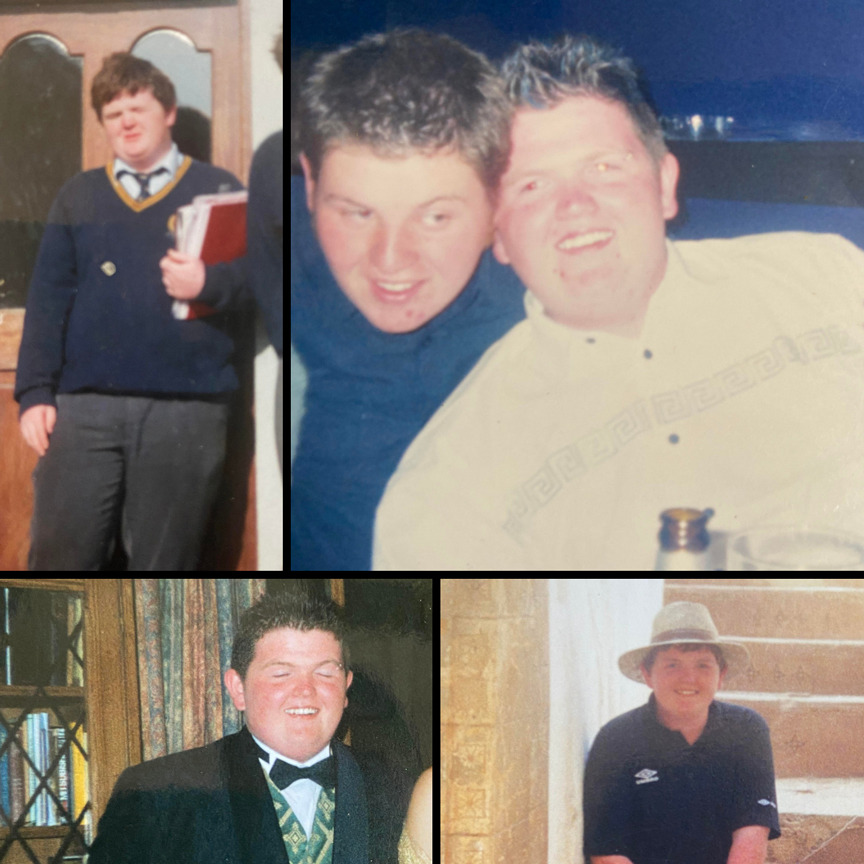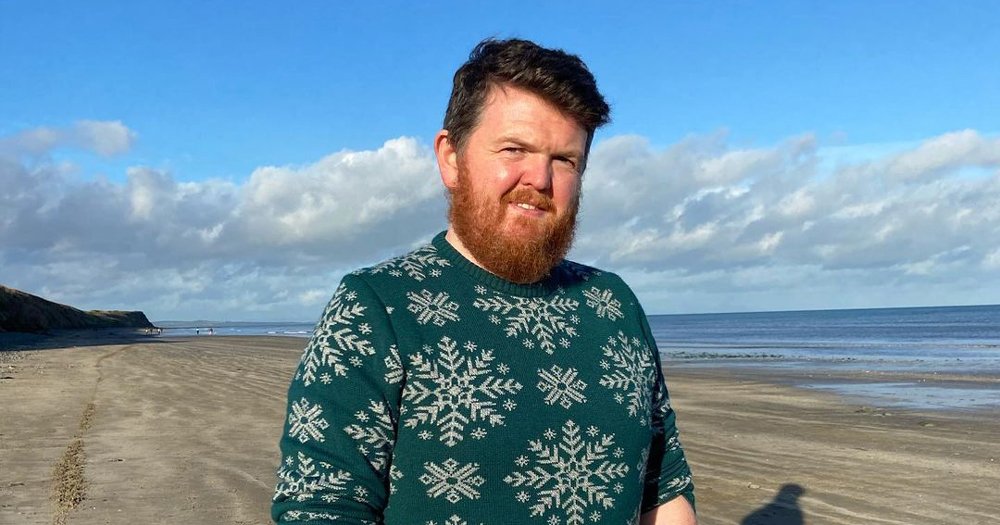James O’Hagan penned this piece for GCN to share his experiences and what prompted him to share an Instagram post titled ‘I’m fat, I’m gay and I’m fed up.’
I went to a rather bougie secondary school, one with its own swimming pool. A phenomenal amenity, and right at my doorstep as I was reminded repeatedly by a chorus of well-meaning adults as they either directly or indirectly suggested that as a teenager, I probably shouldn’t be so fat. They ignored the fact over my final two years in primary school my more expressive and effeminate behaviour had me a target for casual cruelty and bullying from classmates, and that in the space of about a year I’d lost all of my confidence and gained several stones.
When the subject of the swimming pool came up, I’d say that it was too much hassle to bring swim gear – what with the hectic schedule of being a shy, confused, and friendless teenager living in the countryside I just didn’t have the time to put a towel in my bag! Or I’d claim I didn’t like swimming in the first place.
But that was a lie, I loved swimming – my mother has endless stories of me spending hours upon hours in the sea on family holidays, or my near-constant nagging to be brought to swimming pools as a child. The reality was that I had been excited to go to a school with a swimming pool. This had been the only silver lining in being sent to an all-boys school as a child who most definitely did not flourish in the all-male company.
Early in First year, as part of a sports day, as I awaited my turn I overheard the three other boys on my team complaining loudly to the swimming instructor that it wasn’t fair that they’d been ‘stuck with O’Hagan’, the instructor sympathised with them and suggested they ‘let the fat lad go first’ and hope they ‘didn’t have too much ground to make up’.

With that, they joined a crowd of people who would walk alongside me for the rest of my life reminding me that my body was a problem and that I was a problem because of it. Over time they were be joined by children screaming insults at me from the side of the road, groups of guys mocking me on the dance floor in the George, sceptical staff in clothes shops, acquaintances expressing concern for my “health”, and an endless stream of media and online commentators reinforcing feelings of worthlessness, shame and looking at my body and asking ‘why have I done this to myself.’
At the age of 17, in 1999, Queer as Folk premiered, it was the first time I’d ever seen gay people on screen and I was transfixed – I but it wasn’t ‘that’ scene with Stuart and Nathan, or the colour of Canal Street that I stayed with me, it was instant disgust on Vince’s face when the man he’d taken home reveals himself to have a belly. In a sea full of slim, attractive and confident men – the only fat gay person was singled out as unacceptable in their world, and sadly over the past 22 years since I came out, I have found myself told again and again that, outside small sections of the community, the place of fat gay people in the is out of sight, devoid of sexuality and thankful for any positive attention we receive.
As I have worked through a nesting doll of interconnected traumas over the past 18 months, I have been able to sit down with that teenage boy, who felt like his identity and body merged to create a prison where he wasn’t really wanted and couldn’t truly be loved.
The extreme anger and blame I felt has ebbed away and has been replaced by an overwhelming empathy and a profound sadness that I had spent so much of my life trying to prove my value to that mob by continuing to reject and blame myself for the vulnerabilities and insecurities which they had created in me.
I realised that no matter how much weight I lost I would never be able to shed the feeling of shame from those experiences while I remained complicit with the expectation that if you are a fat person, you must be ashamed of your body. So earlier this week I decided that I was going to speak about this subject.
I made a post on Instagram called “I’m fat, I’m gay and I’m fed up.”, without the usual angles or cropping to show myself as I am, and the reaction was overwhelming. I heard from so many people who also had been made to believe that they too had the ‘wrong’ type of body and had lived with a constant sense of shame and embarrassment.
View this post on Instagram
This journey has made me think about how many other people within the queer community have experiences of negative stereotyping, or having their bodies weaponised against them, been viewed exclusively as a sex object or had to endure a chorus of commentary on what does or does not constitute an “appropriate” way to present or express themselves?
Throughout Pride month we spent so much energy educating those on the outside of our community on how they can be good allies, I think that it is time that we in the queer community start to take a hard look inwards to figure out how we can be better allies to each other.
© 2021 GCN (Gay Community News). All rights reserved.
Support GCN
GCN is a free, vital resource for Ireland’s LGBTQ+ community since 1988.
GCN is a trading name of National LGBT Federation CLG, a registered charity - Charity Number: 20034580.
GCN relies on the generous support of the community and allies to sustain the crucial work that we do. Producing GCN is costly, and, in an industry which has been hugely impacted by rising costs, we need your support to help sustain and grow this vital resource.
Supporting GCN for as little as €1.99 per month will help us continue our work as Ireland’s free, independent LGBTQ+ media.
